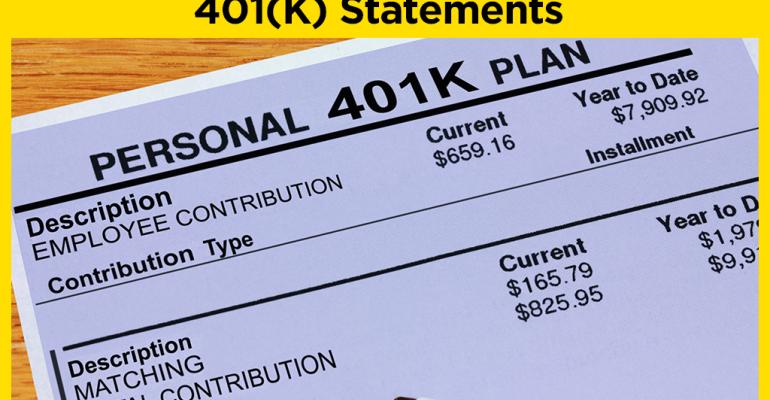The idea that plan fees for advisors and record keepers could ever hit zero seems far fetched, especially since +90% of the revenue for both emanates from the plan, even if ultimately paid by the participants. But there is no doubt that plan fees have declined over the past 20 years and continue to do so as industry consolidation has resulted in more plans and assets managed by fewer, larger entities better positioned to handle this potential fee shift.
And there’s a reason that wealth advisors who have mostly eschewed DC plans because of the relatively low fees and high liability are starting to get more interested.
So what would the 401(k) and 403(b) world look like if advisors and record keepers did not charge for plan services and how likely is that to happen?
There is a concerted move by many retirement plan advisors and many of the larger record keepers to generate a higher percentage of their revenue from participant services. The margins are higher and the opportunities are greater as the convergence of wealth, retirement and benefits at the workplace continues. Some RPA Aggregators that have wealth capabilities have already started down that road - even many that do not are owned by benefits and P&C firms which understand that retirement plans are much less profitable and can be almost given away to secure the higher margin businesses.
There are many hurdles on the road to zero plan fees:
- First, the plan sponsor must agree to allow access to their employees – even if they do not own the data, they feel responsible for any service being offered which has been the subject of many lawsuits. In addition, record keepers will need to agree as they control access.
- Secondly, technology must be improved on archaic record keeper platforms as well as ways to serve the underserved that cannot afford or do not want a person financial advisor through AI and ChatGPT as well as financial apps and the greater use of blockchain.
- Thirdly, there must be some agreement on the proper use of data by all parties that have access including participants themselves. If they get value which can mean personalization, people are willing to allow use of their data and activity assuming some level of protection and insurance.
Though not insignificant, these hurdles are manageable given the stakes. For example, 1% of the estimated $800 billion that rolls out of the $9.3 trillion in DC assets is $8 billion in fees – even at 10 basis points, the revenue is substantial. Firms like Pontera are beginning to allow advisors to actively manage all assets in DC plans which at 1% is $93 billion annually not to mention outside assets and other ancillary services.
The explosion of small plans due to government mandates and tax credits facilitated by group plans has already started with Cerulli estimating the growth of 401(k) plans alone from 652,000 to 980,000 plans over a nine-year period, a 50% increase. Fintechs and payroll providers can handle the administration allowing advisors to manage the money of the owners and senior managers as well as develop relationships with others that may have hidden assets or the HENRYs (high earners not rich yet).
Group plans and other outsourced plan and fiduciary services are growing with costs declining as they achieve scale something likely to also happen with managed accounts. The ideal plan has 90% of the required design features which can be tweaked to personalize them for the organization and participant as data access increases and technology improves. All of which opens up the door for the 276,000 wealth advisors to compete with the 12,000 RPA specialists as well as larger RPA firms to leverage these advances focused on participant fees, some enabled by broker dealer home offices.
Lower plan fees, especially as they near zero, will mean reduced fiduciary liability and fewer lawsuits especially if there are large group plan providers and third parties involved.
Could zero plan fees for record keepers and advisors really happen? The ESOP industry is already there with large providers like Fidelity, Morgan Stanley, JP Morgan and UBS willing to give away administration services for access to participants.
Additionally, asset managers have seen the exodus to low-cost index funds and ETFs especially in DC plans, with some at zero cost leveraging securities lending.
Television and now the internet provides most services at no cost in exchange for eyeballs and now data, which is the new oil.
And with retirement income looming for the $9.3 trillion in DC plans, those that understand the systems and food chain and are already imbedded into the system with participant relationships will be better positioned.
There is little argument that plan level fees are more likely to go down with new competitors and as advisors and providers are forced to reprice old plans driven by regulations, lawsuits and market forces. So even if you vehemently disagree that plan fees can never get to zero, or shouldn’t, can you risk not being prepared if they do? As they say, denial is not a good business strategy.





